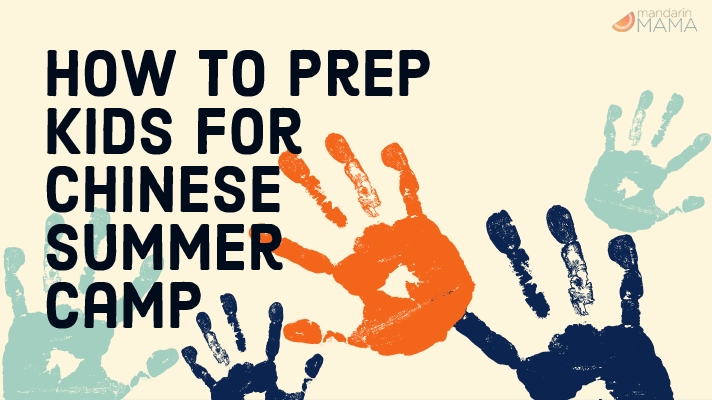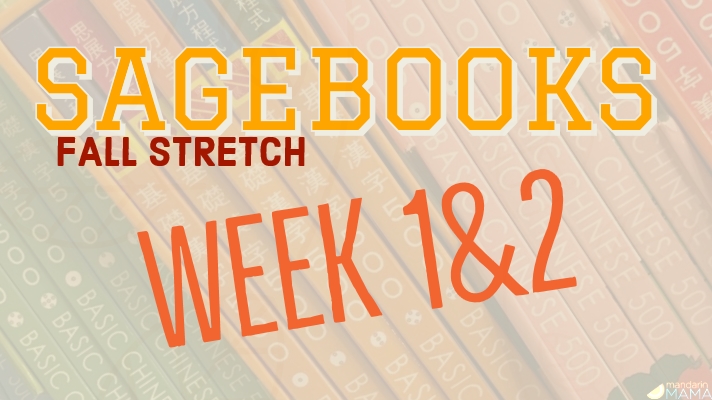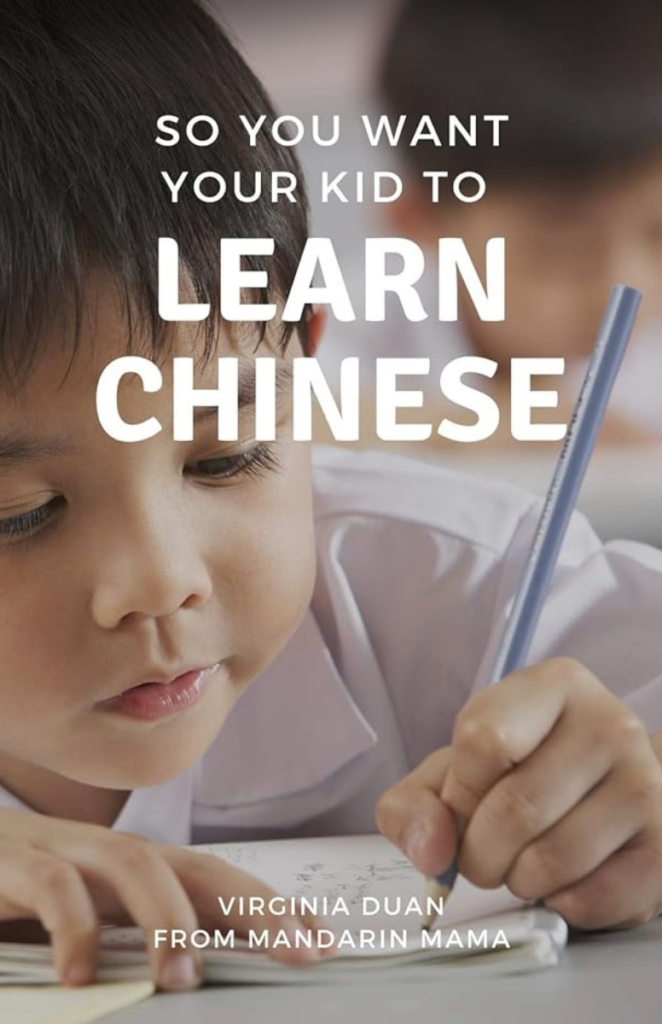
This post was sponsored by Sagebooks. All opinions are mine and mine alone.
I know, I know.
You took one look at this title and got confused because we all know that I don’t really like to have fun. Or at least, no fun with my children.
But you know, just because I have made my own choices in life to provide playmates for my kids so that I would not be drafted into playing with them doesn’t mean I don’t theoretically understand fun as a concept in and unto itself.
Also, I’m plenty of fun.
Plus, I write about it professionally so I know things.
The case for making Chinese Fun
Oh, gracious. Does it even need to be spelled out? I will only do so for this article’s narrative arc and because it only seems fair to include an obligatory explanation in a post titled Making Chinese Fun.
Fun things make people – especially children – want to learn things and trick you into learning without even intending to. That’s the best kind of learning if you ask me. The kind where you didn’t mean to and managed to anyway.
This is how I accidentally learned how to read Korean Hangul and say random Korean phrases.
After a year and a half of reading Korean subs on BTS related content, I have figured out what sounds go with what letters. This doesn’t mean I know what I’m reading – but I can read. (Albeit extremely slowly and poorly and I am very willing to put in more study time by way of BTS and K-drama.)
I’m not going to insult your intelligence any further or do any more work by researching and citing studies on the topic to convince you why fun is more enticing than non-fun. We’re just going to proceed as if this is indeed the fact that it is.
But how? how do we make Chinese fun?
The younger your child is, the easier this will be.
Why? Because babies are dumb.
OK. Perhaps that was unnecessarily harsh. (But you know it’s true. I’ve had 4 babies. It’s true.) I just mean that babies are easily pleased because everything is new to them. Older children, however, are a lot more difficult and thus, the efficacy of my advice will decrease directly proportionate to your child’s age.
LEt’s focus on small children first.
For little kids, there are so many ways. The easiest of which is to do life in Chinese.
While that is not precisely fun, it is also the most effective way to teach your kid Chinese without it seeming as if you’re in school. Our daily lives are full of ways we can introduce Chinese – as well as teaching them the scientific concepts of observation and asking questions.
If you head over to the Sagebooks Blog, you’ll see a lot of my activity posts for pre-K and elementary school kids.
For slightly older children, there are ways to make even learning Chinese characters into games. Again, if you go to the Sagebooks Blog, you’ll see a lot of my posts (as well as their Sagebook staff’s posts) on ways to make learning Chinese entertaining.
Eventually, I will make time to collate all my posts into a landing page on this site but there really are a lot of them so it’s a bit intimidating.
In addition to my excellent posts, I highly recommend you check out CHALK Academy and Fortune Cookie Mom. CHALK Academy has so many fun crafts and ideas for the pre-K and lower elementary set that I really cannot over-emphasize how much joy I get from seeing her photos of activities. Plus, Betty is so kind and warm and you can see the love she pours into her activities for her children.
I’ve also written about Fortune Cookie Mom in the past because she has so many fun worksheets geared towards introducing Chinese and Chinese characters to kids. Her graphics are adorable and my kids (even the big ones) loved doing her activities and learning packets. Po excels at providing content in easy packages and subjects so she’s also perfect for beginners and non-fluent families. Plus, her products come in many language combinations so you’re bound to find the best one for your family.
Other ways to have fun with Chinese
Beyond the obvious activities, try to incorporate Chinese in as much entertainment as possible. Whether it is watching Chinese movies and shows, playing Chinese games, or listening to Chinese stories. You can even turn your car into a Fun Chinese Zone. (Okay, that was excessively cheesy and for that, I apologize. But the info and easy car games are legit and my kids still enjoy playing them.)
If you can swing it, you can take trips to Taiwan, China, and other Chinese speaking countries so that your children can experience the language in many cultural and geographic situations. When they see how other people use Chinese and live and eat and play, Chinese becomes alive instead of a “dead” language that only teachers and parents use to torture them.
Even better if you can find a band or cartoon (eg: Pokemon) that is all in Chinese and have your kids become obsessed with them. You’ll get sick of it but think of all that Chinese content! And it’s psychological warfare to hate it because then your children will love it even more because kids are jerks.
Hey, I don’t make up the rules.
My therapist says that children are supposed to test you and push your buttons because that is literally developmentally appropriate. They’re not being jerks on purpose, but nevertheless, THEY ARE JERKS.
Oh, I got off topic.
If your kids like trying different foods (this is NOT my children), you can take them on cultural food tours or just to your local Chinese restaurant and teach them all the names for your favorite dishes. Honestly, that is also a LOT more practical because I’ll be real. When I was in college, this was the single most useful thing about Chinese: reading the Chinese menu or straight up memorization so I could order dishes that were only on the Chinese (aka: TASTY) menu.
And if all your personal efforts fail, you can resort to my tried and true method of outsourcing. Pay a teacher, a mommy’s helper (either an auntie or a recently immigrated high schooler), or BEG YOUR FAMILY to come over and play with your children in Chinese. Have them go out to eat and do the hanging out things with your kids so you don’t have to. (In Chinese, of course.)
Yes, you DO have to pay them because people’s time is important. However, think of it as a convenient way to have free time for yourself as your children are also learning Chinese in a casual environment. WIN WIN!!
Any other ways you try to make Chinese fun? Let me know in the comments!








